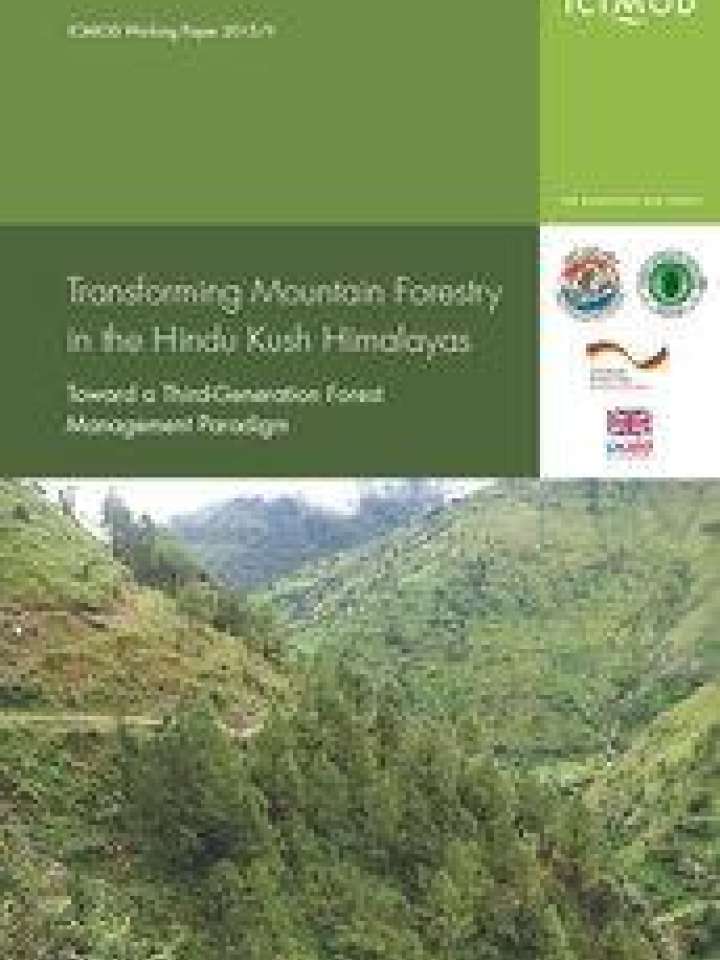Transforming mountain forestry in the Hindu Kush Himalayas: Toward a third-generation forest management paradigm
This document discusses the proceedings of a five-day international symposium on ‘Transforming Mountain Forestry’ that was held in Dehradun, India from 18 to 22 January 2015 to explore options for sustainable forest management practices and policies that address the changing conditions in the Hindu Kush Himalayas (HKH). Disaster risk reduction is a critical area of cooperation for countries in the HKH region. For instance, customised forest fire risk maps need to be developed and shared for the assessment of fire-prone zones in the HKH.
The recommendations made by the participants are the following (p. viii):
- institutions and governance:
- identify policy provisions in the eight HKH countries to foster transboundary cooperation, and find meeting points for sub-regional level trials;
- ensure that women and gender concerns are an integral part of conservation and development efforts from conceptualization to implementation and monitoring.
- forest dynamics and management:
- prioritise mixed forests for their greater resilience to disturbances of any kind, including fire, pests, and erosion, and the improved habitats they offer for wildlife;
- use land use policies and plans to guide development investments.
- linking incentives to stewardship:
- scope out the emerging theme of incentives for the stewardship of mountain forests;
- invest in ecosystem valuation science and the monitoring of ecosystem services.
- from subsistence to regional markets:
- bring in technical interventions and good practices to benefit local communities;
- evolve standards at the HKH level for sustainable management, products, and processes that are linked with a clear focus on poverty and inclusiveness.
- science, policy and practice:
- link research to enterprise and patents;
- facilitate South-South cooperation with a link to the North;
- fFacilitate the innovative exchange of knowledge and information at various levels.
Explore further
